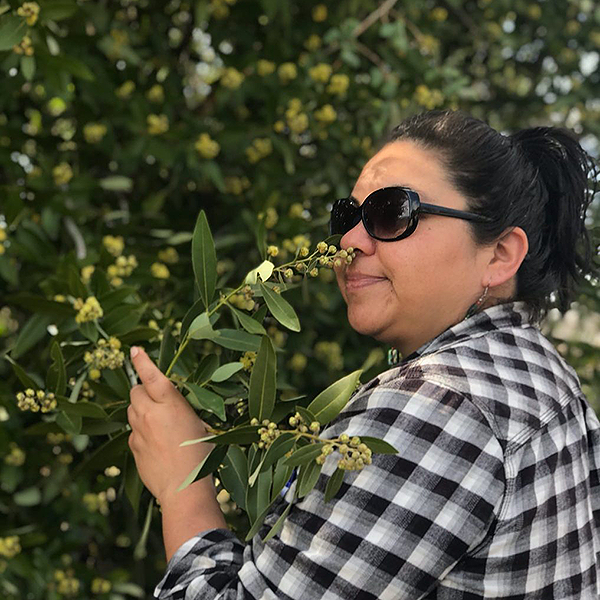Association for Language Awareness 2026 Conference - Heritages, Languages, Ecologies
June 22–25, 2026 | Middlebury Institute of International Studies
-01.png)
The Association for Language Awareness (ALA) is an international organization established in 1994, which hosts biennial conferences around the world dedicated to Language Awareness. Language Awareness is defined as “explicit knowledge about language, and conscious perception and sensitivity in language learning, language teaching and language use” and addresses a wide spectrum of fields, “exploring the benefits that can be derived from developing a good knowledge about language, a conscious understanding of how languages work, of how people learn them, and use them” (ALA 2025).
In 2026, the conference will be held in Monterey, California at the Middlebury Institute of International Studies (MIIS), where the late Professor Leo van Lier, a founding member of ALA, had taught from 1986-2012. The conference committee represents a consortium of volunteers from: Cal State Monterey Bay, MIIS, DLI, Pacific Grove Adult Education, Santa Clara University, UC Santa Cruz, and CSU Fresno among others.
Visit the Conference webpage hosted by Middlebury Institute.
Conference Proposals
The call for conference proposals opened July 1, 2025 and closed November 1, 2025. Proposal authors were notified November 26, 2025 (U.S. PST 5:00 p.m.). We thank all of the applicants for the excellent quality of proposals. The conference registration site and related information for participants and exhibitors is available in the registration information link below. We ask that you use a gmail account for verification purposes.
Donate to the Conference
Please include Donation Code: ALAC1 with your donation.
Featured Presenters

Andrés Ramírez is an associate professor in the Department of Curriculum and Instruction at Florida Atlantic University in Boca Raton, FL USA. He is also co-chair of FAU’s Hispanic Serving Institution Research Interest Group. His research explores culturally and linguistically responsive pedagogies that promote the literacy and language development of Emergent to Advanced Bilingual students (EABs). His book, currently under contract with Routledge, UK and scheduled to be published early 2026, is Translanguaging in Classroom Discourse: Genre-Based Multilingual Pedagogy and Design. He teaches courses in TESOL education, curriculum theory, and discourse analysis.

Carly Tex, is the Executive Director for the Advocates for Indigenous California Language Survival (AICLS) and is responsible for the implementation of the Advocates’ programs, vision, and mission to support the revitalization of languages Indigenous to California. She also is a co-convener for the Collaborative Language Institute (CoLang) and sits on the Board of Directors for the Alliance for California Traditional Arts.

Robert O'Dowd is a professor for English Studies at the Universidad de León, Spain. He has published extensively on the application of Virtual Exchange in higher education and has coordinated 3 Erasmus+ projects, including the European Policy Experiment ‘Virtual Innovation and Support Networks for Teachers’ (VALIANT) (2021-2024). He collaborates with organizations on the promotion and integration of Virtual Exchange in higher education and his most recent book is Internationalising Higher Education and the Role of Virtual Exchange (2023, Routledge). He was recently listed in Stanford University’s ‘Ranking of the World Scientists: World´s Top 2% Scientists’.
Strand Topics
1. Language Awareness in the age of AI
This strand explores the challenges of language awareness in the age of Artificial Intelligence. What is enhanced with the ubiquity of AI and what is lost? Why learn languages? How might critical literacy and language awareness aid in detecting bias and misinformation?
2. Language Awareness in Virtual Exchange
Virtual Exchange, Telecommunication, or Collaborative Online International/Intercultural Learning (COIL) have been an international technology-based learning exchange practiced between universities for more than 25 years. This strand explores Language Awareness in Virtual Exchange--design, application, implementation, opportunities, and challenges.
3. Language Awareness and Indigenous Languages
The United Nations General Assembly proclaimed the period of 2022–2032 as the International Decade of Indigenous Languages (IDIL 2022–2032). This strand explores language awareness in relation to indigenous, heritage, and immigrant languages and communities.
4. Language Awareness in Education and the Workplace
This strand considers language awareness in teaching and training in educational settings and professional environments. It examines how understanding language use, variations, and functions can enhance or impede communication, learning, and collaboration.
5. Language Awareness for Social and Environmental Ecologies
How might language awareness contribute to global healing? How might plurilingual learning provide opportunities for empathy, understanding, and peace education? How does the presence of absence of language impact traumas experienced?